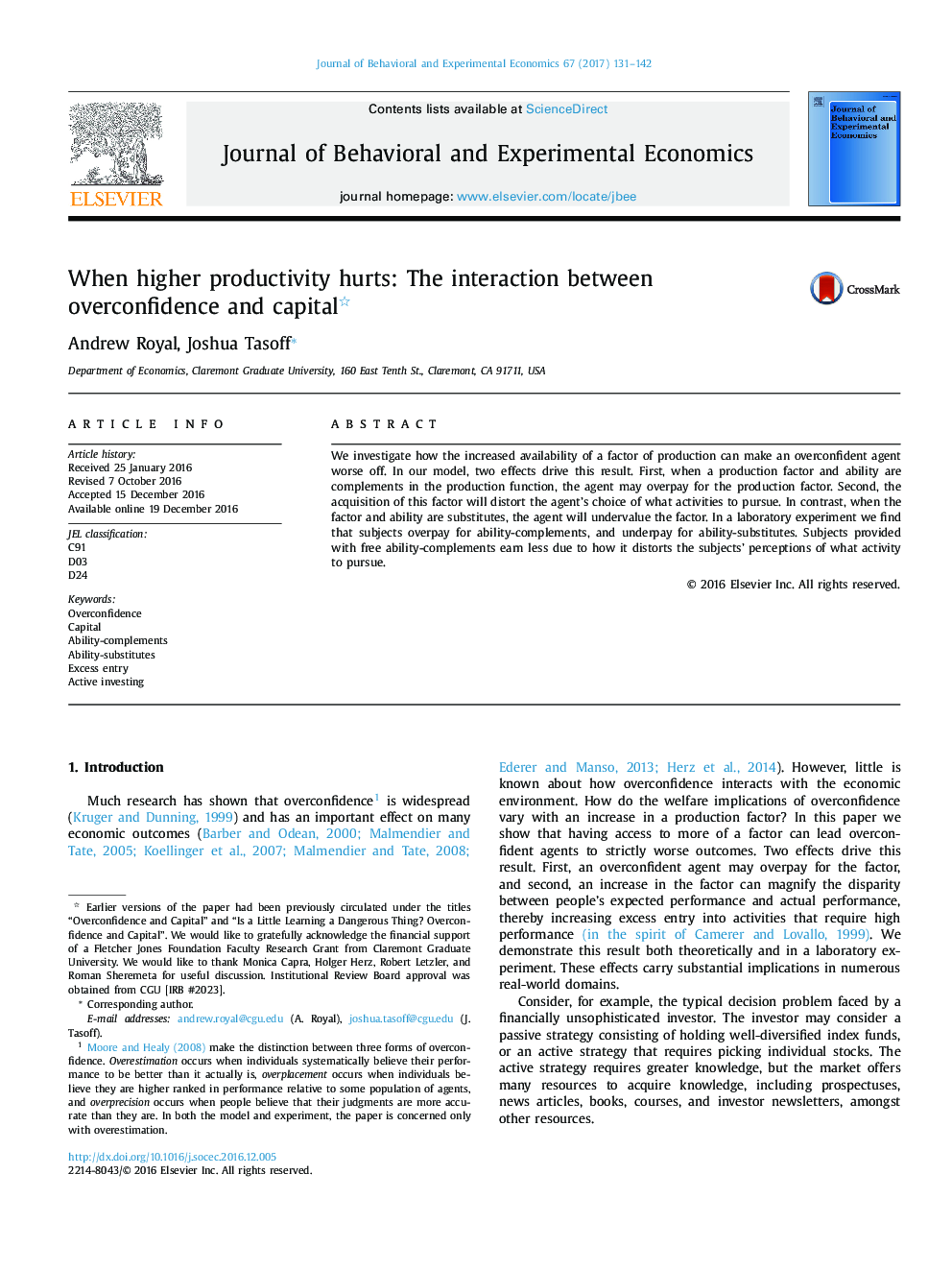| Article ID | Journal | Published Year | Pages | File Type |
|---|---|---|---|---|
| 5034148 | Journal of Behavioral and Experimental Economics | 2017 | 12 Pages |
â¢We model the interaction between productivity-enhancing capital and overconfidence.â¢Capital that is a complement with ability can make an agent worse off.â¢Capital that is a substitute with ability will usually make the agent better off.â¢In an experiment we show that the complement makes agents worse off.â¢This relates to active investing and the decision to engage in conflict.
We investigate how the increased availability of a factor of production can make an overconfident agent worse off. In our model, two effects drive this result. First, when a production factor and ability are complements in the production function, the agent may overpay for the production factor. Second, the acquisition of this factor will distort the agent's choice of what activities to pursue. In contrast, when the factor and ability are substitutes, the agent will undervalue the factor. In a laboratory experiment we find that subjects overpay for ability-complements, and underpay for ability-substitutes. Subjects provided with free ability-complements earn less due to how it distorts the subjects' perceptions of what activity to pursue.
